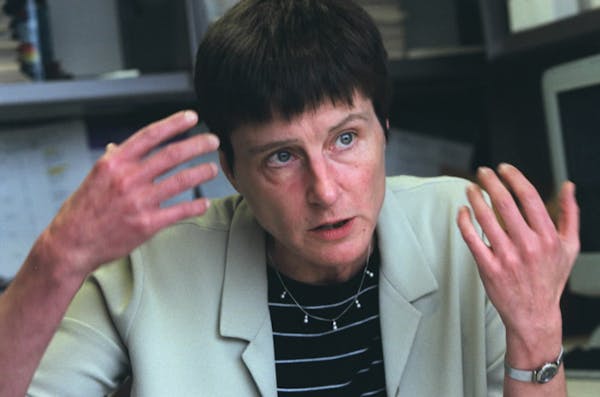Stem-cell pioneer Dr. Catherine Verfaillie apologized Wednesday for a 2001 scientific paper that the University of Minnesota now says contained falsified data.
Verfaillie said she "did not notice the problems," which came to light in a university probe disclosed Tuesday.
"I am extremely sorry about this," said Verfaillie, who headed the university's stem-cell institute from 1999 to 2006.
She responded to questions by e-mail from Belgium, where she now lives.
The U said Tuesday that the 2001 paper, an early study on adult stem cells, contained altered images and "misrepresented experimental data." The investigation blamed a former graduate student for manipulating the images.
Verfaillie declined to describe them as falsified data, saying only that there were errors and problems.
She also rejected the university's criticism that she failed to properly oversee the research.
"I rely on the honesty and integrity of those working in the lab," wrote Verfaillie. "Nevertheless, I want to make it clear that I take the ultimate responsibility for the work performed in my lab."
Pioneer in research
Verfaillie was once one of the U's most famous scientists. Her team was the first to show that adult stem cells could be an alternative to embryonic cells in medical research. Her work also has been hailed by social conservatives, who point to it as evidence that there's no need to destroy embryos to advance medical science. But questions still remain about whether adult stem cells will be able to be used successfully to treat disease.
In 2006, Verfaillie left for a similar research position at Catholic University in her native Belgium, but she retains a part-time faculty position at the U. The university began investigating Verfaillie's research after the magazine New Scientist raised questions about the accuracy of several published studies. The findings disclosed Tuesday were the result of an 18-month investigation by a panel of three experts, including two from outside the U.
Verfaillie said she stands by the conclusions of the 2001 study, which showed the potential of adult stem cells to grow into different types of cells. She said that "all of its key findings" have been replicated by other scientists. But in light of the investigation, she and the university have both asked for a retraction, which she called "the proper course in this situation." The paper originally appeared in the scientific journal Blood, which is published by the American Society of Hematology.
Dr. Morayma Reyes, a former graduate student who worked with Verfaillie, has acknowledged that some images were manipulated. But she denied falsifying data, and said the changes were minor, such as adjusting brightness and contrast. Now an assistant professor at the University of Washington, she blamed the actions on "ignorance [and] inadequate supervision and training."
Verfaillie said that she has added "additional oversight measures" to ensure the integrity of her research. "These include a requirement that any and all manuscripts to be submitted for publication are reexamined by me," as well as other senior investigators. "I am confident that these measures will avoid the recurrence of a similar problem in the future."
Maura Lerner • 612-673-7384
Live video of man who set himself on fire outside court proves challenging for news organizations

